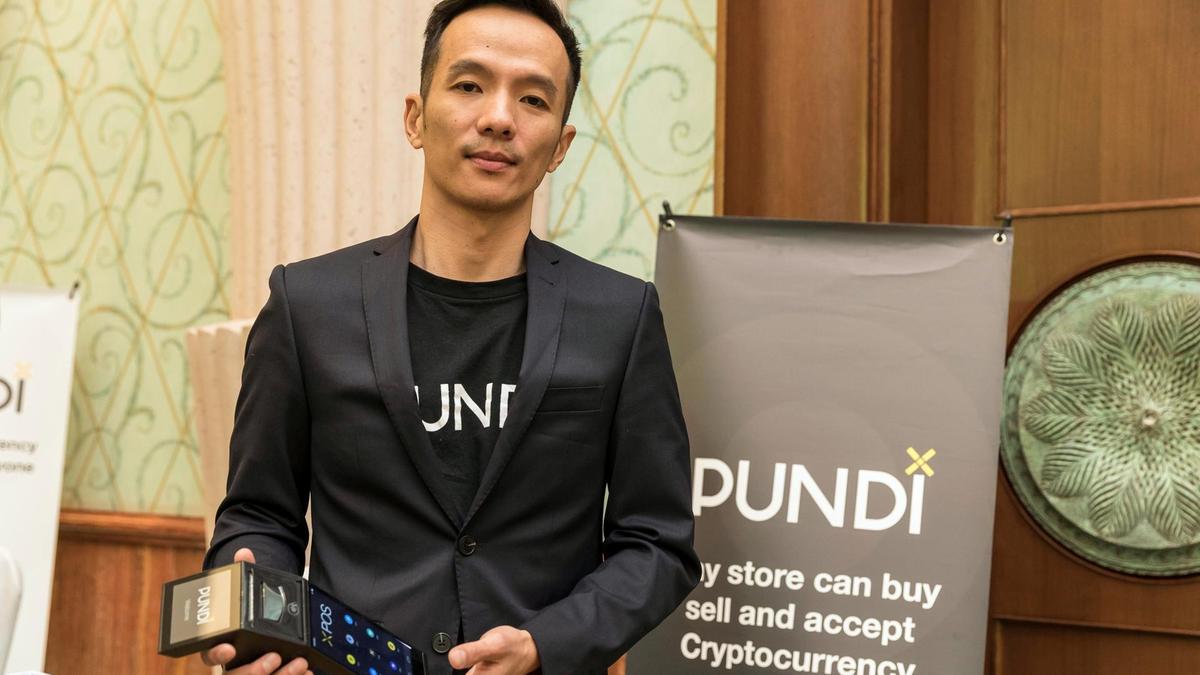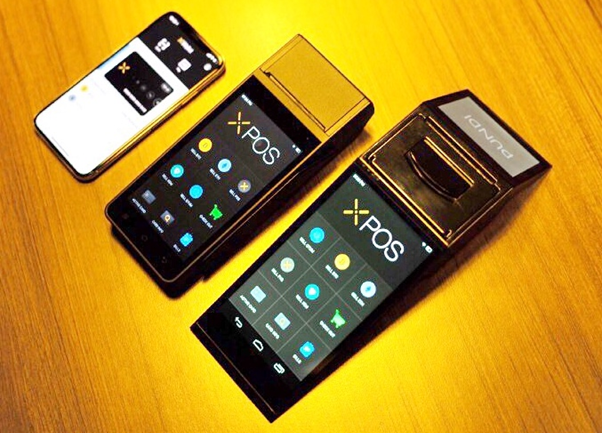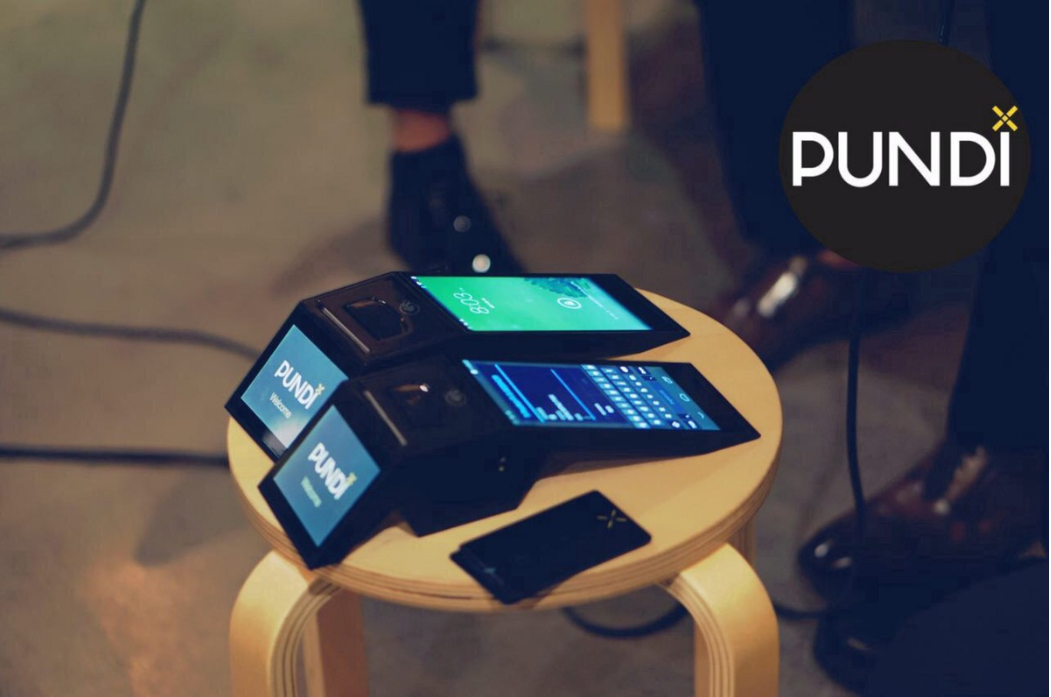Pundi X CEO on expansion plans, Coinrail hack and crypto adoption
In the wake of the hack on South Korean based cryptocurrency exchange Coinrail, Pundi X CEO and co-founder Zac Cheah speaks candidly about the breakneck growth of Pundi X and the major challenges ahead.

The recent hack of South Korean cryptocurrency exchange Coinrail revealed just how highly sought after Pundi X’s NPXS tokens are. Barely a week after Pundi X announced that it would be rolling out its versatile blockchain-powered point-of-sale (POS) system in Indonesia, which accepts traditional payment methods such as credit cards but are also cryptocurrency-enabled for future use, hackers made off with US$20 million worth of NPXS tokens, or just over half of the total value of digital tokens stolen from embattled cryptocurrency exchange Coinrail. And while investigations at Coinrail are ongoing, Pundi X is very much focused on delivering on its promise to provide a blockchain-based traditional and cryptocurrency payment gateway solution for merchants.
We sat down with Pundi X’s CEO and co-founder Zac Cheah to find out what is powering the ICO darling these days.
What is Pundi X?
Pundi X is developing the first and only realworld, blockchain-based point-of-sale (“POS”) device today.
Pundi X’s blockchain-based POS devices allow users to walk into a retail store and, with the swipe of a card, to buy or sell cryptocurrencies, or purchase consumer goods, services or utilities such as electricity by using either fiat currencies (USD, Euros, GBP etc) or cryptocurrencies.
There are 10 cryptocurrencies available, including BTC, ETH, LTC, XEM, XLM, QTUM, ACT, DGD, ZEC, and NPXS, to enable consumers to conduct cryptocurrency payments and exchange transactions in physical stores. We are in talks with token issuers to support more tokens in the near future.

Pundi X POS devices on display.
The new model XPOS comes equipped with card readers which allow merchants to accept EMV chip cards and traditional magnetic stripe cards. This will also allow traditional credit card companies and banks and other popular payment solutions such as Apple Pay to use the Pundi X POS device. This is an attractive proposition for merchants looking to expand into cryptocurrency transactions while retaining the ability to continue to take traditional payment methods. It also opens the door for other crypto card issuers, credit card companies and banks to be able to use the Pundi X POS device to conduct blockchain-based transactions.
Growing out of Indonesia’s leading fintech company, a QR-code payment app with over 100,000 users in Jakarta alone, Pundi X launched with an existing base of fintech expertise.
We launched in January with an incredibly successful initial token sale that raised over US$35 million in under 90 minutes.
Five months later we’ve begun mass production of our devices and are soon poised to begin shipping to major markets in coming weeks.
You spend many years based in China, what did your experience there teach you with respect to blockchain and cryptocurrencies?
My experience in China was highly instructive, but more from a perspective on how different cultures approach product development and the things we can learn from each other rather than anything to do specifically with cryptocurrencies, which of course remain subject to stringent regulations.
My first roles in tech included stints with JotSpot (acquired by Google and rebranded as Google Sites), Opera in Scandinavian countries and then later China. I returned to China again as the Chair of W3C’s HTML5 Chinese Interest Group and as the co-founder of a gaming company.
What managing large teams in each of these countries has done, however, is expose me to different product development philosophies up close and how to sift between the pros and cons of each.
For my interest and knowledge in cryptocurrency, it originated from my study of computing and security in the universities where cryptography was part of the curriculum.
You ran a very successful ICO last year, since the end of the PUNDI X public token sale, what have been the developments and partnerships built?
Plenty. We agreed to a very interesting MOU with our friends at Wanchain while at Consensus 2018 in New York last month. We’ll be announcing more deals in time to come. Regrettably the unannounced deals are still commercial-in-confidence and market-sensitive so they cannot be disclosed just yet. I think I can say that we have held talks with major exchanges, new liquidity providers, government clients and major multinationals about adoption of our technology and payment gateway services. New developments have the potential to improve the nature of the data protection we can offer consumers on our device. Stay tuned, it won’t be long.

Pundi X provides a secure and versatile platform for both traditional as well as cryptocurrency payment methods secured by the blockchain.
So far 25,000 of our devices have been pre-ordered in the less than five months since our public token sale closed. It’s worth remembering this figure is more than one-quarter of our three-year sales projections. We’re targeting at least 100,000 devices in major markets in three years.
When will crypto-savvy users be able to find PUNDI X POS machines in South Korea, Indonesia, Malaysia and Singapore which seem to be your key markets?
We will be shipping externally (we’re Indonesia-based) to four markets initially – South Korea, Japan, Singapore and Switzerland. Pilot production for the latest batch of the XPOS, bound for these countries, has already begun rolling off the production line. We’ll have more to say in coming weeks about those markets and on a slightly longer time-frame about the markets to which we haven’t announced shipping yet.
What are the major challenges ahead? Are they mainly regulatory or commercial?
Regulation is always an issue for any business involved in cryptocurrency. We respect and comply entirely with all applicable laws and regulations when entering a new market. That being said a lot of the governments who are currently staunchly against the deployment of cryptocurrencies have recently shown themselves willing to consider with an open mind it’s possible benefits. We think that’s to be welcomed.
If you were to propose one key idea to push further the adoption of cryptocurrencies, what would it be?
Mainstream adoption, simply put.
A recent study showed 1,600 people own one-third of all Bitcoin wallets. While people celebrate cryptos success, they must surely acknowledge how many people are being left behind.

Members of the Pundi X team in Jakarta, Indonesia. The team has been working hard to push the Pundi X POS device out to the vast archipelago.
We aim to solve this by simplifying cryptocurrency transactions. The Pundi X team designed a blockchain-based POS solution to facilitate easier transactions, especially for those who do not have a smartphone or bank account. Rather than navigate public, private keys and long addresses you just need a card and a store with a device. We’re hoping this helps to take blockchain and crypto mainstream and bring it into the realm of the economy that really matters – consumer spending.
The latest hack of the South Korean exchange Cointail which saw 2.6 billion NPXS moving out of the exchange has been major news. How was this hack impacted PUNDI X?
In a business sense, we are entirely unaffected. Pundi X’s security was never breached and it remains intact. We continue holding discussions about new business ventures, with exchange partners and about our expansion plans.
We did have to take the step of suspending our entire network, though, in order to prevent the hacker from making off with his funds and let law enforcement step into the investigation. This wasn’t a step we took lightly, albeit one that was only implemented briefly.
This (the ceasing of operations) was done at the request of the South Korean authorities and with the sole purpose of bringing the hacker to justice and helping our token holders recover funds.
Has Coinrail or coin owners reached out to you for help? How will Pundi X assist in this process?
Yes, we have been assisting Coinrail since day one of the hacking incident. Two teams work together relentlessly to minimize the impact brought to the affected holders. We had intensive discussions, not only with Coinrail but with South Korean authorities. Unfortunately the nature of the ongoing investigation means I am not at liberty to disclose the content of those discussion. In time we will hopefully have a complete recount of what happened.
Why do you think they targeted NPXS?
It would be impossible for me to speculate.
Original article posted on www.cryptoinvestor.asia.









